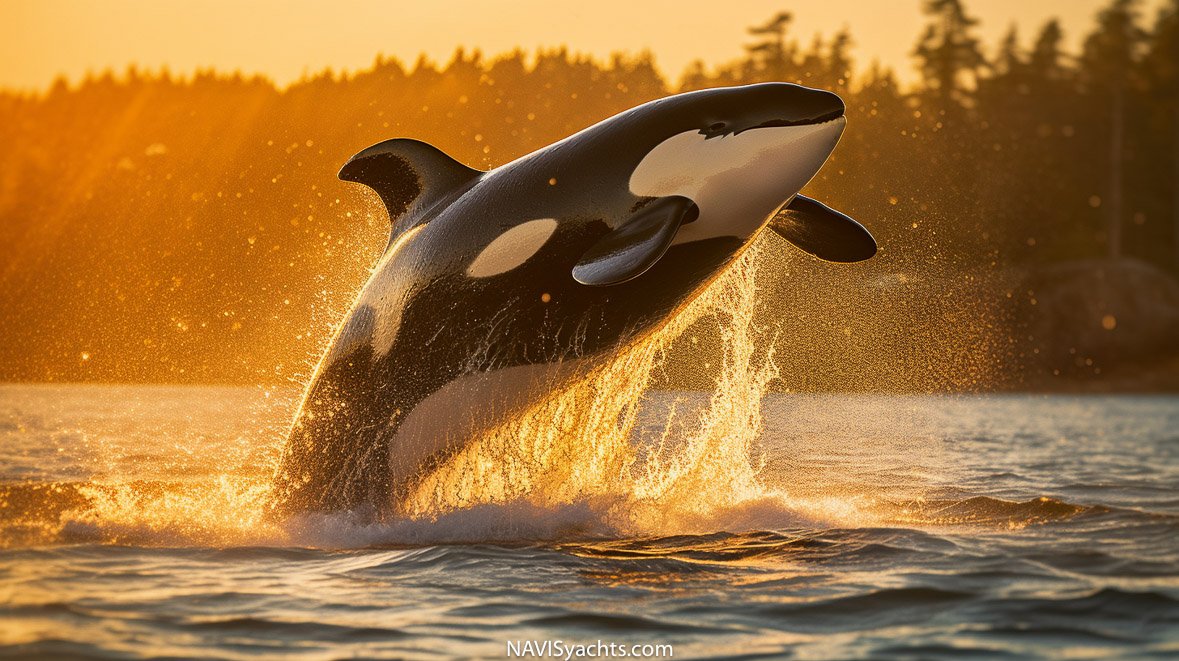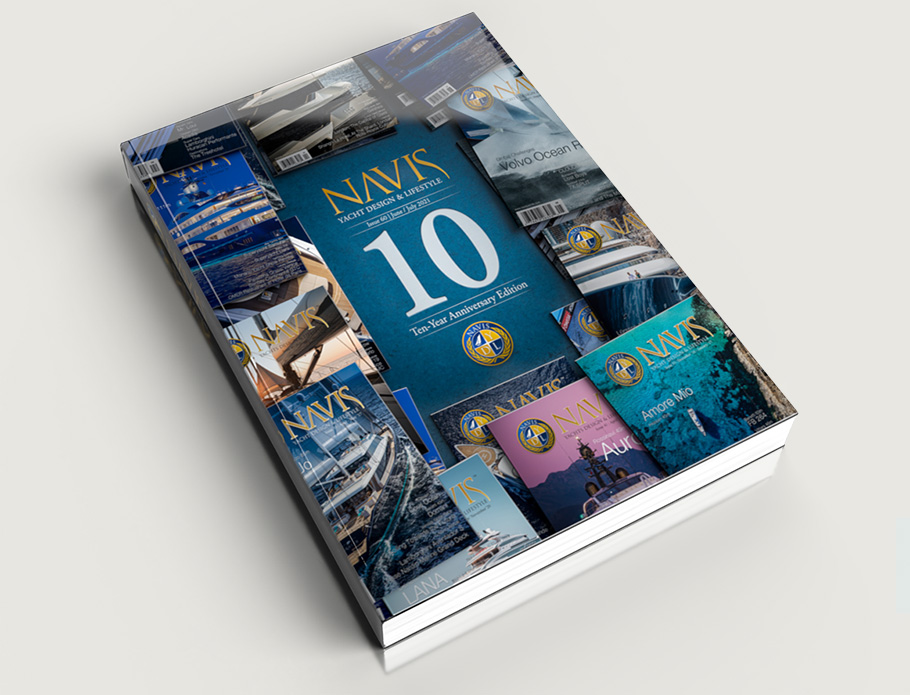In recent weeks, Spain's beautiful coastlines have been subject to a surge in orcas attacking boats. The notion of killer whales attacking human-operated boats is an unnerving one, and as yet, there is little known about the motivation for the whales behaving in such a manner.
Experts have suggested that this could result from increasingly frequent boat tours in the waters near Spain's stores, which may be disrupting the orca's natural environment. Unaware of the potential threat, Boats may unknowingly enter the whales' habitat, prompting an instinctive reaction from the animals to protect their home.
The Royal Spanish Maritime Rescue and Safety Agency has been quick to respond to the issues, issuing warnings and guidelines to boat skippers around Spain's coastline regarding the danger posed by the orcas. Guidelines include taking extra care when navigating near orca habitats, increasing speed if circled by orcas, and avoiding swim stops or boat tours in orca territories.
The sailing conditions off the Iberian Coast, particularly around Gibraltar, have become increasingly dangerous in recent years. Over 100 incidents involving orcas attacking boats have been documented since 2020, two of which resulted in sunken yachts. Approximately 15% of boats that encounter orcas require towing to shore afterward.
In order to reduce the risk for sailors in the area, the Cruising Association has taken up the challenge of collecting reports and data with a view to minimizing interactions between boats and orca whales.
The Black Antifoul: Suspected Link to Orcas Attacking Boats
As evidence continues to mount showing that orca attacks in the Spanish coast seem to be linked to the presence of black antifoul, marine biologists are getting increasingly concerned about the potential consequences of leaving this substance unchecked.
Black antifoul is commonly used in paint and bottom coating for boats and ships, and is designed to reduce drag and fight off organisms that often adorn the outer surfaces of marine vessels. But recent studies have consistently revealed that orcas in the area appear to be affected by whatever it is that attracts them to the boats, leading to a number of attacks on crew members and recreational swimmers.
The main concern is that the material contains toxic compounds, primarily copper, which are highly toxic to marine life. Ingestion of the material, or contact of the material itself, can cause health issues and even death in some cases. As a result, the use of black antifoul must be closely monitored, especially in areas where orcas are known to congregate.
After collecting data for approximately six months, the CA team is analyzing the correlation between black antifoul and orca behavior. They found that of boats exhibiting attack behavior, more than 50% were using black antifouling. On the other hand, of trouble-free voyages only 25% had black antifouling – suggesting a twofold increase in risk factor when utilizing this material. Further exploration is needed to draw any concrete conclusions.
The use of black antifoul may be a potential concern but cannot be concretely confirmed until more data is collected. To resolve this issue, the CA has reached out to an advisory firm in order to compile scheduled AIS data and attempt to determine how many yachts have not reported their travels. The details surrounding this additional project are currently under consideration.
Mr. Burbeck highlights that "having the echo sounder on does not seem to be an issue." However, he is aware that the black antifoul could be unrelated to orca behavior. In order to have more conclusive data, the CA is requesting sailors, marinas and rescue services to provide completed reports through their online orca report system. This would help them gain deeper insights into orca behaviors.
The danger posed by Orca attacks outside the waters of Spain is a reminder that we must always be vigilant when it comes to interacting with wildlife, especially species that can become aggressive in certain conditions. While it is rare for Orcas to attack humans, it is always important to be aware of the potential danger such large and powerful predators can bring. With proper safety protocols and awareness of the environment, professionals and recreational boaters in the area can enjoy the scenery without putting themselves in danger.
Article Update: June 8, 2023.
Unprecedented May 2023 Orca Interactions with Boats off the Spanish Coast
During May 2023, a notable increase in interactions between orcas, or killer whales, and vessels off the coast of Spain was observed, with 11 reported incidents throughout the month1. In an alarming episode on May 4th, orcas were reported to have sunk a yacht, marking one of the more extreme events of this kind in the year so far2. This recent surge in incidents adds to a growing number of similar occurrences, with 207 reported interactions between orcas and small vessels throughout the previous year.
Experts are studying these incidents, seeking to understand why these typically non-aggressive creatures are acting out in this way. A theory proposed by whale researcher Dr. Deborah Giles suggests that these events might be connected to a traumatic experience endured by a female orca, which other orcas may have learned from. The orcas involved are an endangered species, and it's possible they are responding to a "critical moment of agony" experienced by one of their own with a boat.
As we continue to share these waters with these magnificent creatures, it is crucial to understand how to navigate safely around them. The most important advice offered by whale experts is to maintain a safe distance from any orcas spotted, ideally between 50 to 100 meters, and to refrain from entering the water when these animals are near. It's also recommended to turn off your engine or at least slow down, trying not to approach the orcas from the front or back, but to stay on their side instead.
Situation update - June 2023
Orcas Interact with Ocean Race Teams in Unsettled Atlantic Waters

Two of the VO65 boats racing in The Ocean Race VO65 Sprint have had direct encounters with orcas - killer whales - in the Atlantic Ocean to the west of Gibraltar on Thursday afternoon.
Watch the video here (swearing alert!!)
Team JAJO and Mirpuri Trifork Racing have both reported being approached by orcas around 1450 UTC. The teams subsequently contacted Race Control to confirm there had been no injuries and no damage to their boats, despite the orcas pushing up against or in at least one case ramming into the boat and nudging or biting at the rudders.
“20 minutes ago, we got hit by some orcas,” said Team JAJO skipper Jelmer van Beek after the incident. “Three orcas came straight at us and started hitting the rudders. Impressive to see the orcas, beautiful animals, but also a dangerous moment for us as a team. We took down the sails and slowed down the boat as quickly as possible and luckily after a few attacks they went away… This was a scary moment.”
The area around Gibraltar is becoming well known for what some are calling ‘orca attacks’ on boats, where an individual or pod of orcas repeatedly ram into a boat's hull or rudders. In some cases, boats have been significantly damaged - at least three to the point of sinking.
There is some good background on this Orca pod here - https://www.scientificamerican.com/article/why-has-a-group-of-orcas-suddenly-started-attacking-boats/
Scientists are still trying to understand this new behavior.
Fortunately for The Ocean Race boats today, the orca encounters were brief and relatively benign, although no doubt frightening, but with no damage to the people, boats or animals.




